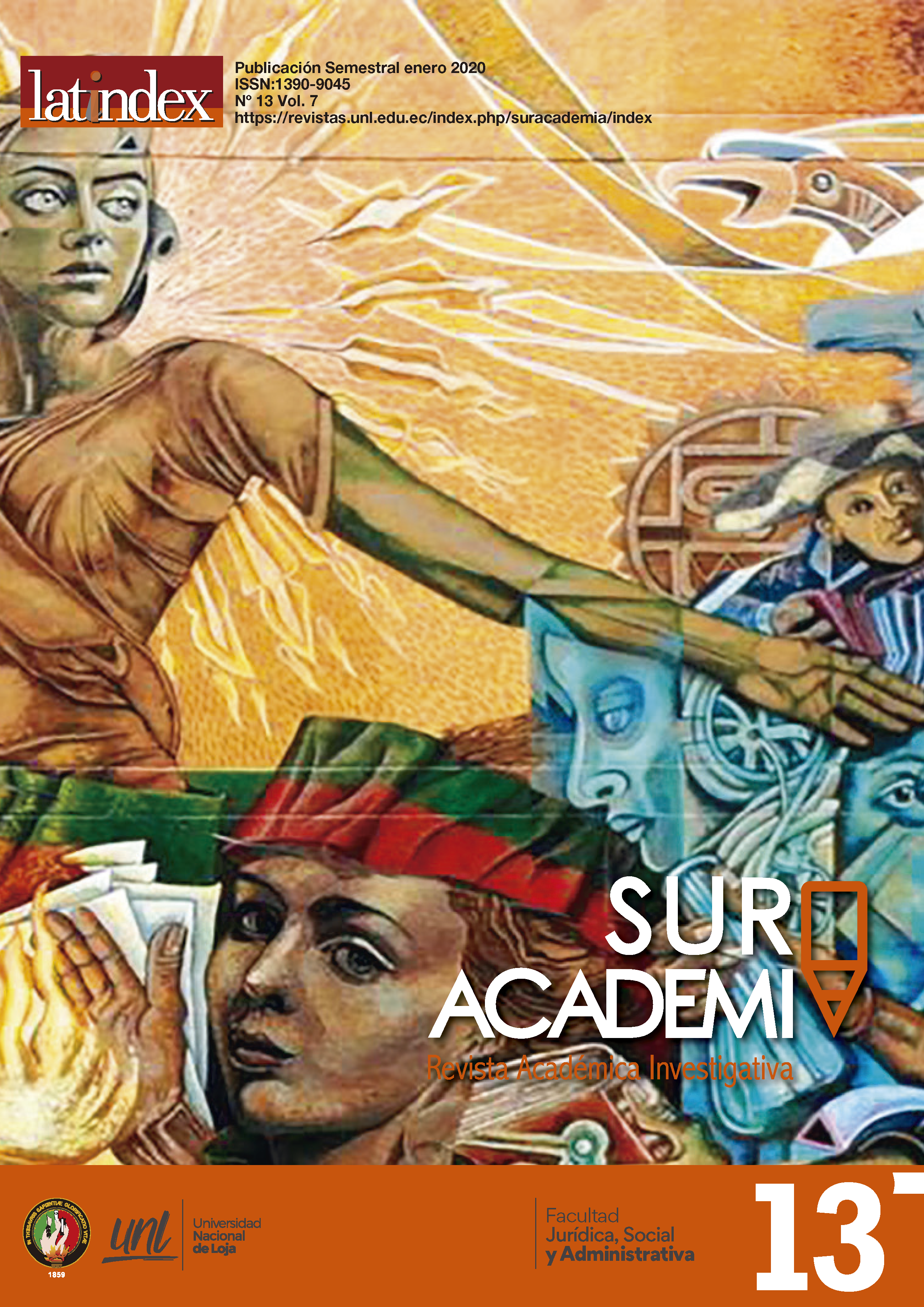From Correísmo to Anti-Correísmo. Radicalization, polarization and political change in Ecuador.
Main Article Content
Abstract
Article Details

This work is licensed under a Creative Commons Attribution-NonCommercial-NoDerivatives 4.0 International License.
Sur Academia proporciona acceso inmediato y gratuito a todos los contenidos de esta edición electrónica. La publicación no tiene ningún coste para los autores.
References
Acosta Alberto y John Cajas Guijarro, Una década desperdiciada. Las sombras del correísmo, Quito, CAAP, 2018.
Bejarano, Ana María; Segura, Renata. Asambleas constituyentes y democracia: una lectura crítica del nuevo constitucionalismo en la región Andina. Colombia Internacional, núm. 79, septiembre-diciembre, 2013, pp. 19-48, p.44
Borja, María Sol; The New York Times en español: https://www.nytimes.com/es/2018/07/25/opinion-ecuador-rafael-correa-prision/
Brewer-Carías, Allan R., Golpe de Estado y Proceso Constituyente en Venezuela, Universidad Nacional Autónoma de México, México D. F., 2001, pp.347.
Cas Mudde & Cristóbal Rovira Kaltwasser, Studying Populism in Comparative Perspective: Reflections on the Contemporary and Future Research Agenda, Comparative Political Studies, november 2018, Volume: 51 issue: 13, page(s): 1667-1693, p.14.
De la Torre, Carlos. 2013. "El tecnopopulismo de Rafael Correa. ¿Es compatible el carisma con la tecnocracia?". Latin American Research Review 48(1): 24-43.
Eaton, Kent; The Centralism of ‘Twenty-First-Century Socialism’: Recentralising Politics in Venezuela, Ecuador and Bolivia. Journal of Latin American Studies, Cambridge University Press, 2013, 45,
Montúfar, César; La dictadura plebiscitaria. Neoconstitucionalismo y construcción de un nuevo Régimen Político El Ecuador a inicios del Siglo XXI, Quito, Universidad Andina Simón Bolívar, Informe de Investigación, 2018. P.37.
Peruzzoti, Enrique; “Emergencia, desarrollo, crisis y reconstrucción de la sociedad civil argentina”, en Sociedad civil, esfera pública y democratización en América Latina: Andes y Cono Sur, coord. Aldo Panfichi (México, D.F.: Pontificia Universidad Católica del Perú/ Fondo de Cultura Económica, 2002), p. 98.
Wolff, Jonas; Business Power and the Politics of Postneoliberalism: Relations Between Governments and Economic Elites in Bolivia and Ecuador, LATIN AMERICAN POLITICS AND SOCIETY 58: 2 ,2016 University of Miami, DOI: 10.1111/

